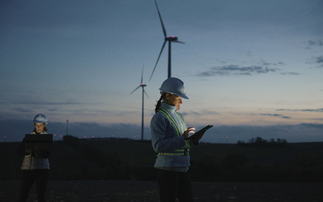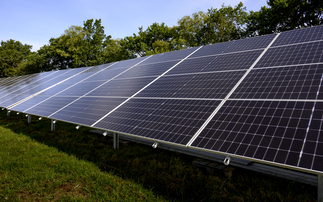Richard Black analyses the latest draft Paris climate text, identifying key sticking points and major gaps
The latest draft of the potential climate agreement in Paris represents, as you'd expect, a compromise between the interests of all countries. Everyone's got some things they're happy with and some things they're not.
One important point is that this latest draft hasn't been formally negotiated - it's the French Presidency's latest iteration of the original, based on feedback to the Presidency from informal meetings.
The Presidency has generally played a blinder, but of course it might have made the odd error or two - thinking that a certain form of words would be acceptable to every country, only to find that it isn't.
Foreign Minister Fabius, in charge here, had planned to unveil the final draft today, but now it's due on Saturday. This indicates that some delegations do have difficulties with the text. However, governments have moved so far over the last few days, and so quickly, that it's hard to imagine the draft is too far from an eventual compromise.
If adopted as is, what would it commit countries to do? Here are some of the top lines:
- Strive every sinew to keep global warming "well below 2ºC", and aim for 1.5ºC
- Safeguard food production as that happens
- Provide financing "consistent" with this goal
- Achieve "greenhouse gas emissions neutrality" in the second half of the century. That's less specific than in previous drafts, but essentially we're talking about a vast reduction, if not complete elimination, of fossil fuel use (without carbon capture and storage) some time between 2050 and 2100
- Take stock of collective progress in 2023 and thereafter every five years
- Regard the $100bn per year figure for rich-to-poor financial transfers from 2020 as a floor, with introduction of a short-term process to increase that amount. Richer developing countries (eg the Gulf states) would be invited to contribute also beyond 2020 - so you could expect further trading off in years to come
- Greater transparency on how money's both raised and spent
- Have further conversations about the damage to poor nations caused by past emissions from rich ones
One thing that doesn't appear to be agreed yet is the regime for monitoring and verifying countries' individual progress, in particular the strength of requirements on the new big emitters (China etc) compared with Western nations.
That's just a snapshot of where we stand as of 1006 Paris time on Friday 11th December. A lot could happen between now and the end of the conference, whenever that is - and, as they often say in these halls, nothing's agreed until everything's agreed.
Richard Black is director at the Energy and Climate Intelligence Unit
This article is part of BusinessGreen's Road to Paris hub, hosted in association with PwC.








